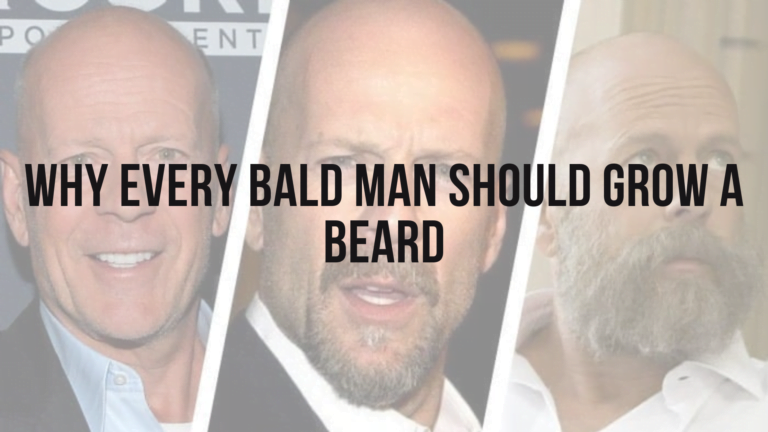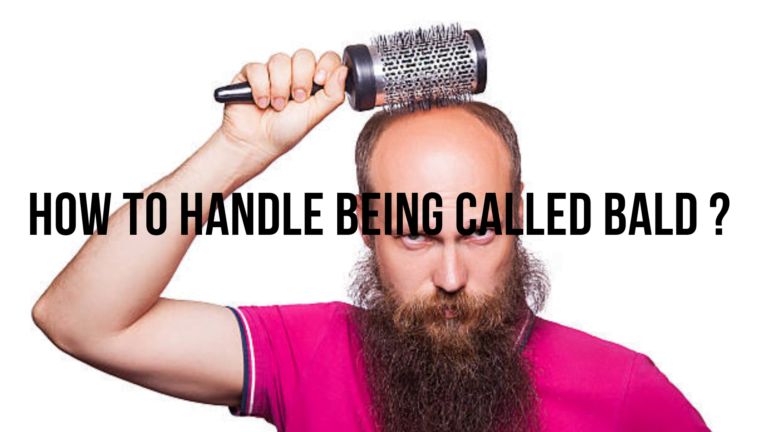In the realm of social interactions, language plays a pivotal role in shaping perceptions and emotions. The use of nicknames, labels, and terms often fluctuates between being endearing, neutral, or outright offensive.
Among these, the term “baldy” has been a subject of debate, raising questions about its implications and the emotional impact it may carry.
This article delves into the nuances surrounding the usage of “baldy” and explores whether it is considered offensive.
Understanding the Term “Baldy”
“Baldy” is a colloquial term often used to describe someone who is bald or is experiencing hair loss. The term is generally intended to be lighthearted, seemingly playful, or as a means of acknowledging someone’s lack of hair.
However, the impact of the term greatly depends on the context, the relationship between the speaker and the recipient, and the individual’s sensitivity regarding their appearance.
Context and Intent Matter
The perception of “baldy” as offensive or harmless hinges on the context and the intent behind its usage. In a friendly banter among close friends or family members, it might be exchanged with no harm intended, serving more as a term of endearment or jest. Yet, if used in a mocking or derogatory context, it can easily be perceived as offensive and hurtful.
Sensitivity and Individual Perception
Individuals may react differently to being called “baldy.” For some, it might be a source of insecurity, especially for those who are already self-conscious about their hair loss. In contrast, others might take it in their stride, perceiving it as a harmless nickname.
Understanding and respecting the sensitivity of individuals towards their appearance is crucial in determining whether “baldy” is offensive.
Cultural and Social Considerations
Cultural and social factors also play a role in how the term is received. In some cultures, baldness might be associated with wisdom or maturity and is not perceived negatively.
Conversely, in other cultures, it might be stigmatized, leading to the term being more easily construed as offensive.
The Importance of Respect and Communication
In a world where sensitivity and respect for individual differences are increasingly emphasized, communication becomes paramount.
The key lies in understanding and considering the feelings of others. If unsure whether “baldy” might cause offense, it’s best to avoid using it or ask the individual how they feel about the term.
Understanding the Legality and Impact of Describing a Man as “Bald”
In a real-life case, an employment tribunal has recently ruled that calling a man “bald” in the workplace constitutes sex-related harassment.
The judgment emphasized that hair loss is more common among men than women, making comments about baldness a form of sex-related harassment. This ruling equates commenting on a man’s baldness to making remarks about the size of a woman’s breasts.
The case revolved around a veteran electrician, Tony Finn, who worked for the British Bung Company for almost 24 years until his dismissal in May the previous year. Finn alleged that during a confrontation with the factory supervisor, Jamie King, he was called a “bald cunt,” which he found particularly offensive.
The tribunal, led by Judge Jonathan Brain, deliberated on whether referring to Finn as “bald” constituted insult or harassment. The panel concluded that King’s words aimed to violate Finn’s dignity, creating an offensive and hostile environment. They noted that King’s use of the term “bald” was intended to insult Finn and threaten him, connecting it to the protected characteristic of sex.
The ruling highlighted the prevalence of baldness among men compared to women, establishing a direct connection between the term “bald” and the characteristic of sex.
The tribunal referred to a previous case where a man’s comment about a woman’s breast size was deemed as sexual discrimination, drawing a parallel with King’s comment about Finn’s appearance.
Consequently, the tribunal determined that King’s conduct towards Finn was unwanted, a violation of Finn’s dignity, and it created an intimidating environment related to Finn’s sex. Finn’s compensation will be decided at a later date as a result of this ruling.
Conclusion
In conclusion, the term “baldy” can be perceived as offensive or harmless based on various factors, including context, individual sensitivity, cultural norms, and the nature of the relationship between the speaker and the recipient.
As with many forms of language, its impact is subjective and dependent on the perceptions of the individuals involved.
Respecting others’ feelings and being mindful of the impact of our words remains crucial in fostering a more understanding and empathetic society.
Ultimately, while some might not find the term offensive, it’s important to be cognizant of its potential to hurt or cause discomfort.
Choosing language that uplifts rather than undermines is a step towards a more inclusive and respectful discourse.






